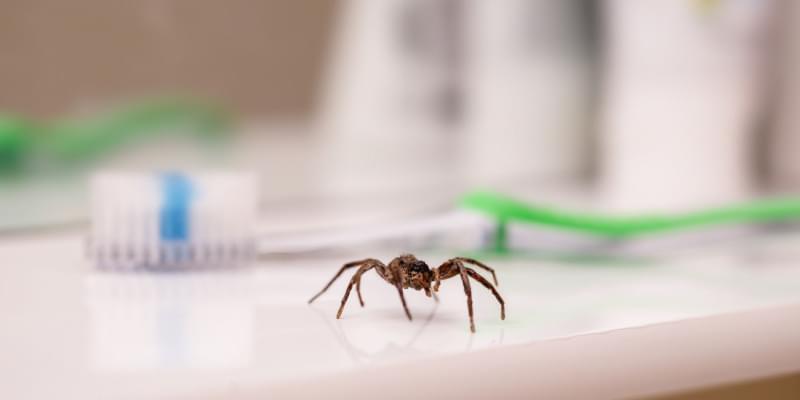Discovering a spider problem in your home can be disconcerting. Whether you have a mild spider infestation or just a few unwanted guests, taking the appropriate steps to address the issue is essential for your comfort and peace of mind. This comprehensive guide will walk you through what to do if you have a spider problem in your home.
1. Stay Calm and Identify the Spiders
The first step is to stay calm and identify the spiders if possible. Not all spiders are harmful, and most are beneficial in controlling other pests. Take note of their appearance, size, and behavior. Try to determine if they are common household spiders or potentially dangerous species, such as black widows or brown recluses. If you need clarification on their identification, it's best to avoid handling them and seek professional help.
2. Conduct a Thorough Inspection
Take the time to inspect your home thoroughly. Check corners, window sills, basements, attics, and other dark and undisturbed areas where spiders may build their webs or nests. Look for egg sacs, shed exoskeletons, and signs of spider activity. Identifying the extent of the infestation will help you decide on the appropriate course of action.
3. Remove Spider Webs and Egg Sacs
If you come across spider webs or egg sacs, remove them with a vacuum cleaner or a broom. Regularly clearing away webs will make your home less inviting to spiders and help control the populations of other insects that may attract spiders as prey.
4. Practice Good Housekeeping
Maintaining a clean and clutter-free home is crucial in reducing the chances of a spider infestation. Regularly clean and vacuum your living spaces, paying particular attention to corners, cracks, and crevices. By eliminating potential hiding spots and food sources, you can discourage spiders from taking up residence in your home.
5. Seal Cracks and Gaps
Inspect your home for any cracks or gaps in windows, doors, and the building's exterior. Seal these openings with caulk or weather stripping to prevent spiders from entering your home. Pay attention to areas around pipes, cables, and utility entrances, as these can be common entry points for spiders.
6. Use Natural Spider Repellents
Certain natural substances act as spider repellents. Essential oils like peppermint, eucalyptus, and tea tree oil have strong scents that spiders dislike. Dilute these oils with water and spray around entryways, windows, and other spider-prone areas to deter them from entering your home.
7. Install Window Screens
Installing window screens is one of the most effective ways to keep spiders out of your home. These screens act as a barrier, preventing insects and spiders from entering your living space while also allowing fresh air to circulate. By attaching screens to all windows in your home, you can significantly reduce the chances of encountering unwanted arachnid visitors. Window screens are designed with tiny mesh openings too small for spiders to crawl through. Additionally, screens can block other insects that spiders feed on, discouraging them from lingering near your windows in search of prey.
8. Reduce Outdoor Lighting
Spiders are attracted to light sources, which, in turn, attract their prey. Consider using yellow or sodium vapor light bulbs for outdoor lighting, as they are less appealing to insects and spiders.
9. Use Spider Traps
One reason why spider traps are highly recommended is their ease of use. These small devices are typically adhesive-based and can easily be placed in areas where spiders are commonly found, such as corners, windowsills, or basements. Once a spider walks over the trap's sticky surface, it becomes trapped and unable to escape. This not only helps eliminate existing spiders but also prevents new ones from entering your space. Furthermore, spider traps offer a safer alternative compared to using pesticides or insecticides.
10. Seek Professional Help
If you have a persistent spider problem, are dealing with potentially dangerous spiders, or feel overwhelmed with the infestation, it's time to seek professional help. Professional pest control services have the expertise and equipment to handle spider infestations safely and effectively. They can identify the species, assess the extent of the infestation, and implement targeted treatments to eliminate spiders from your home.
11. Know When to Call for Medical Help
In the unlikely event that you are bitten by a spider and experience severe symptoms such as difficulty breathing, intense pain, dizziness, or nausea, seek immediate medical attention. It's essential to know the common symptoms of spider bites and be aware of any potential allergies or reactions you may have.
In conclusion, if you have a spider problem in your home, it's crucial to remain calm and take proactive measures to address the issue. However, if the infestation persists or involves potentially dangerous spiders, contact the experts at Trio Pest Control. We can help you reclaim your home from unwanted spiders.
